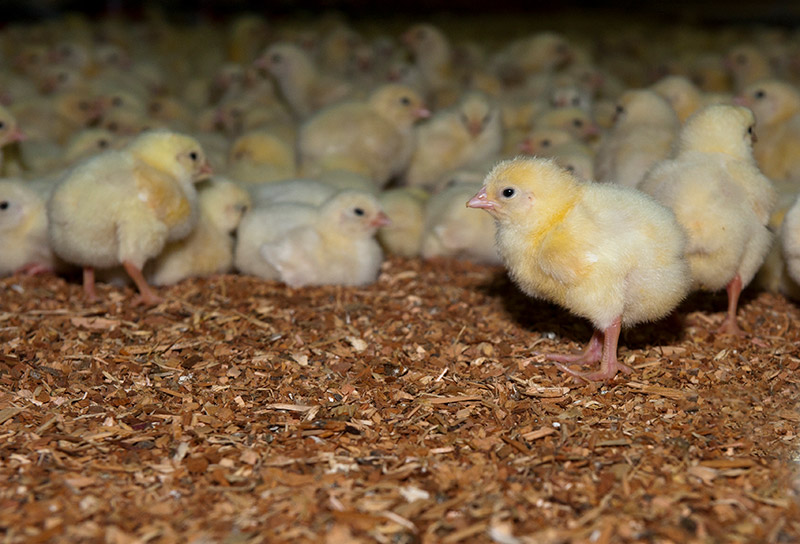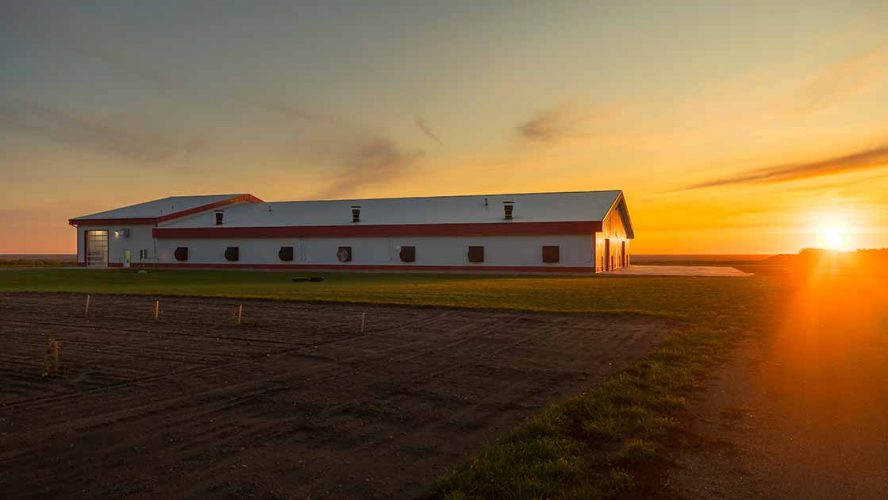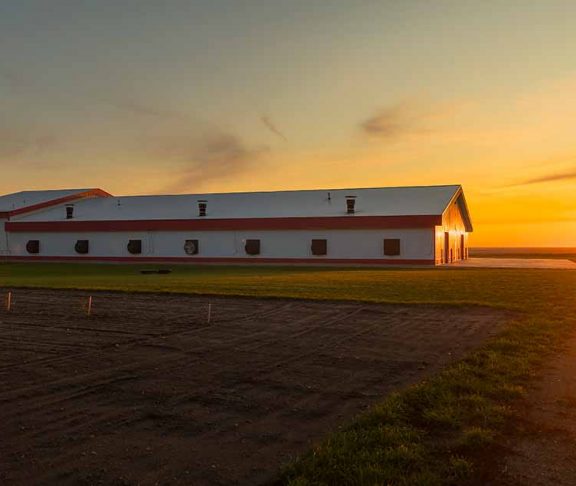Canada’s chicken industry has a refreshing success story to tell with respect to sustainability and protecting the environment.
Canadian consumers care about sustainability. They want to know where their food comes from and that the work behind producing it is sustainable in every sense: environmentally, economically, and socially. And our country’s chicken farmers deliver.
An impressive evolution of continued improvement in sustainability
“Farmers have always been mindful of the environment and of their environmental stewardship,” says veterinarian Dr. Christine Power, Director of Animal Care and Sustainability at Chicken Farmers of Canada. “Canadian chicken farmers have a long history of looking at better and better ways to manage their resources.”
In 2017, Chicken Farmers of Canada launched its first life cycle assessment of the Canadian chicken value chain to measure the environmental and social performance of Canadian chicken production. The results highlight 40 years of continuous environmental improvement.
From 1976 to 2016, the carbon footprint of Canadian chicken decreased by 37 percent due to major productivity gains and improvements in the feed to gain conversion ratio. Canadian chicken farmers’ innovation and commitment also resulted in a 37 percent decrease in non-renewable energy consumption and a 45 percent decrease in water consumption. “Of the energy it takes to raise a chicken from gate to plate, 63 percent comes from renewable resources,” says Lisa Bishop-Spencer, Director of Brand and Communications at Chicken Farmers of Canada. “That’s tremendous.”

A multi-dimensional perspective on sustainability
In comparison to chicken from different regions around the world, Canadian chicken production has the lowest carbon footprint overall. The carbon footprint of chicken is also lower than other North American livestock, making chicken a sustainable choice. When thinking about sustainability, however, considerations go beyond environmental factors. For Chicken Farmers of Canada, sustainable chicken production also means protecting bird health and welfare, producing safe chicken, preserving the health of the land and of Canadian farms, and contributing to the Canadian economy by providing affordable food to Canadians. This multi-dimensional approach to sustainability ensures that the industry is truly tenable.

Supply management: a key piece of the sustainability puzzle
Supply management is an important component of the chicken industry’s sustainability. Chicken Farmers of Canada works hard to ensure that the country’s 2,800 farmers produce the right amount of fresh, safe, high-quality chicken to meet Canada’s needs — no more and no less. This ensures that farmers receive a fair return for their investment and hard work, and that consumers from coast to coast get a reliable supply of Canadian chicken at reasonable prices.
The Canadian chicken industry is also an important part of the Canadian economy, contributing over $8 billion to Canada’s GDP and paying $1.9 billion in taxes annually. The industry sustains over 101,000 jobs across the supply chain and provides competitive working conditions, with over 90 percent of Canadian chicken farmers paying their workers a salary above the provincial minimum wage and about 70 percent offering their employees additional benefits.



